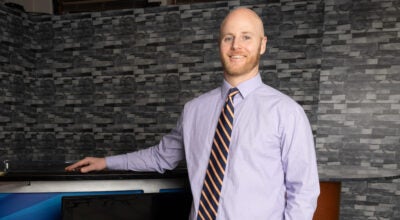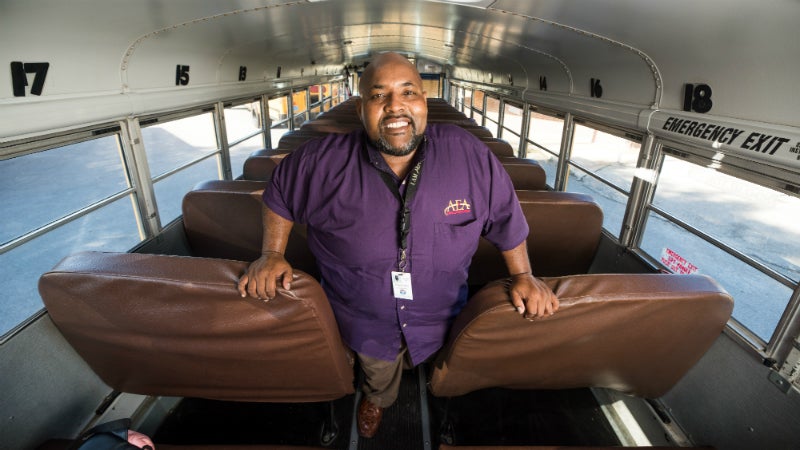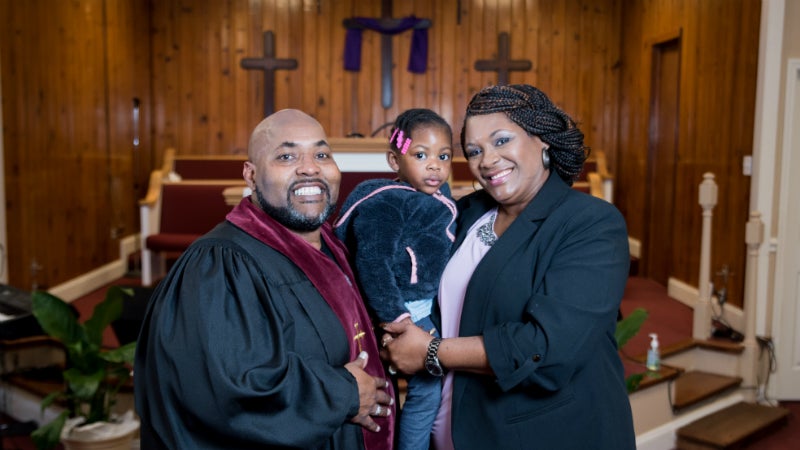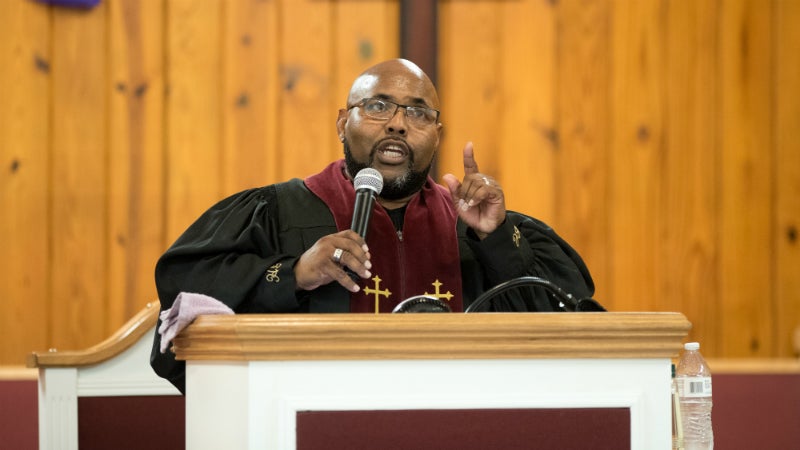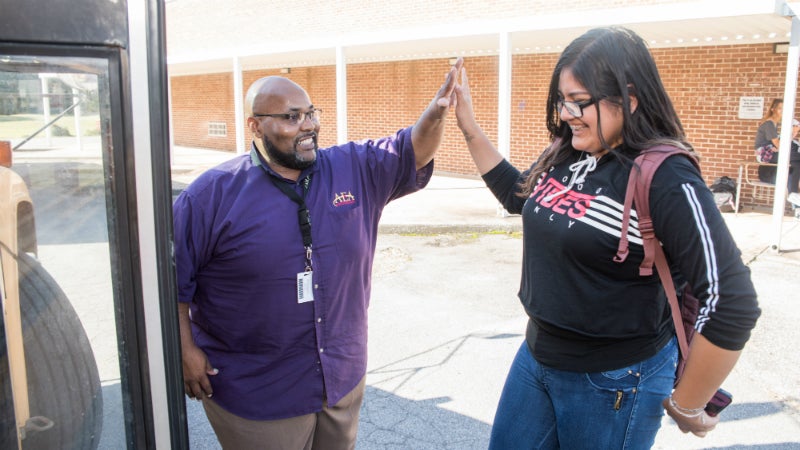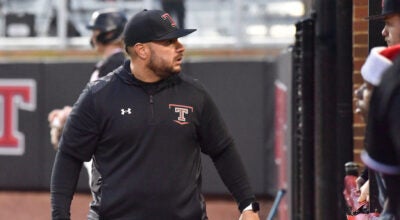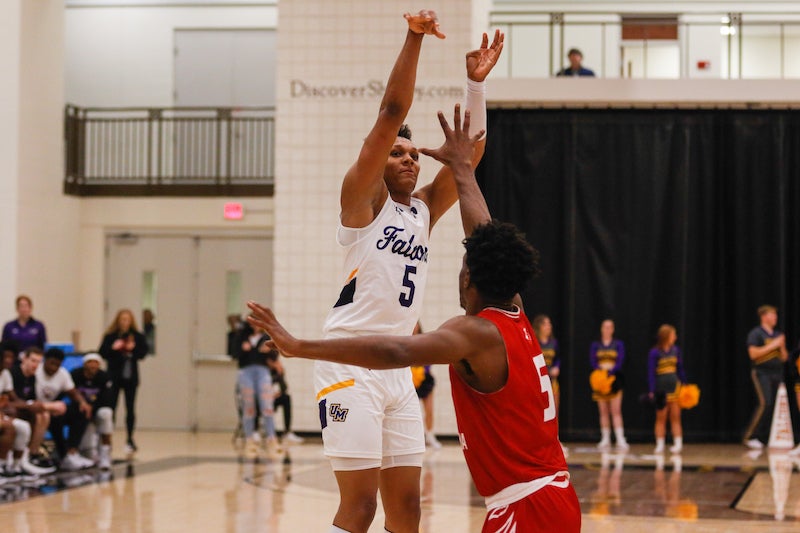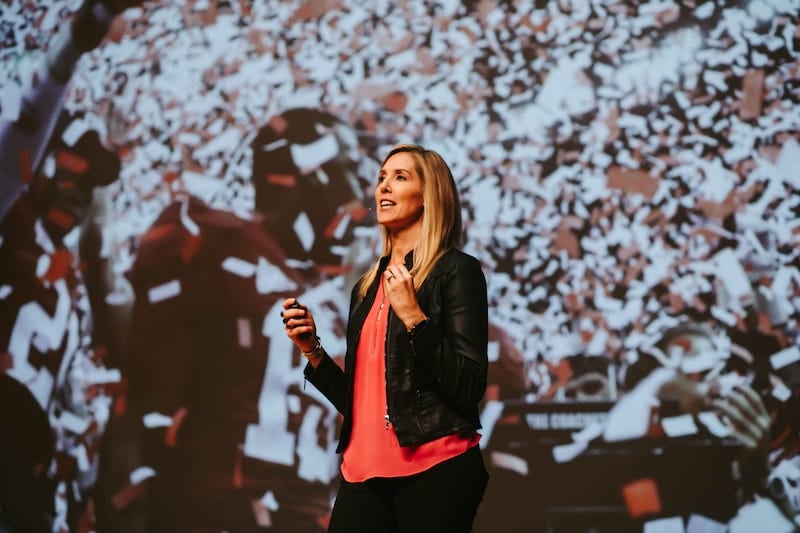PROFILE: Kenneth Dukes: Rock of Hope
Published 2:55 pm Tuesday, February 26, 2019
By Stephen Dawkins
Photos by Keith McCoy
Even on Sunday mornings, there was no sleeping in for Ruby Dukes. She rose with the sun, maybe even before, and began preparing a meal of steak and biscuits with gravy for her family. The first visitor to the kitchen was little Kenneth, her grandson who lived next door off Brickyard Road in Montevallo, always eager to learn lessons from his grandmother about cooking and life.
Kenneth Dukes’ father and mother were both high school dropouts who struggled with alcohol and drugs. But instead of falling into the despair that claims so many in similar situations, he clung to the rock of hope that was his grandmother. “She basically was the closest thing to Christ I’ve seen in my life,” Dukes says about a woman who never knew her father and whose mother died while she was young, but who spent a lifetime trying to help others. “She motivated me to never let circumstances dictate my future.”
With Ruby’s teaching and encouragement, Dukes navigated a challenging childhood and grew to be a community leader—pastor, mentor and founder of the Shelby County Chapter of the National Association for the Advancement of Colored People.
One of Ruby’s lessons was hard work. She worked as a custodian at the University of Montevallo for about 45 years, and also cleaned homes and babysat for fellow UM employees. The work did not stop at home, where she cooked and gardened. “She was just a worker,” Dukes says. “She never stopped, she never slowed down. She was a little petite lady, probably 4-foot-10, but she was one of the strongest people I’ve ever met.”
But she always made time for family. Ruby baked pies with the blueberries picked by Kenneth and his brother, and they walked about a mile to a creek that wound through the University of Montevallo golf course. “She would fish until every bait was gone or it thundered, whichever came first,” Dukes recalls. “There was a simple part of life that now nobody understands. She would never warm food in the microwave. She would put it in the oven. She would say, ‘I can wait.’ She would say, ‘That’s the problem with the world is they want everything too fast.’”
Ruby’s strength was also emotional. Dukes remembers when his uncle, Ruby Dukes’ son, passed away. “She had a crying spell, but she would look up and say, ‘Lord, it’s in your hands,’” Dukes says. “I asked her how she did that. She said, ‘When you grow up with the life I had, you either had an inner strength or you would probably be dead.’ I wanted that trait more than any other.”
Ruby Dukes died in December 2017 at the age of 98, but even before that, relatives started to lean on Dukes the way they had his grandmother. He realizes now it was the beginning of his experience with leadership.
If You Don’t Fail
Dukes recalls a day when his mother was attempting to console his brother who had failed sixth grade—and was worried that Dukes would laugh at him. They did not know Dukes could overhear their conversation. “Don’t worry, baby, he’s going to fail at something one day,” their mother said. “I told myself, ‘Never,’” Dukes says today. “It motivated me, and it scared me at the same time. It motivated me to the point of never wanting to fail but scared me to the point (where) if I thought there was a chance I would fail, I would never even try.”
At Montevallo High School, coaches including Bobby Pierson, Richard Gilliam and Tony Berry had a significant influence on Dukes’ life. “Coach Gilliam would never raise his voice or curse, but he could get more out of someone than anyone I’ve seen,” Dukes recalls. Pierson, meanwhile, arrived at Montevallo High School from Conecuh County the same year Dukes entered as a freshman. Pierson teased Dukes about “throwing his time away” in the marching band and convinced him to serve as a manager for the football team.
In a similar role for the Bulldogs’ basketball team, Dukes helped produce a pregame program modeled after the Chicago Bulls warmup routine. After the player introductions and before tipoff, Dukes bellowed into the microphone using a nickname acronym for “Coach Pierson”: “CP, turn them Dawgs loose.” Pierson won more than 350 games over 26 years as coach at MHS and became a local celebrity. Folks would see him around town and yell out Dukes’ famous line. “Tell you the truth, (Dukes is) one of my best friends,” Pierson says. “If I’m broke down anywhere, I call him and he’s there.”
Pierson played football at Alabama State University and maintained connections there, and with Dukes about to graduate from high school, the coach helped secure Dukes a scholarship to ASU as an athletic trainer. Dukes told his mother the exciting news. “I hope you make it,” Dukes remembers her saying. “That response froze me up. I was scared I was going to fail. I made that into me saying I would never let another child that’s around me be afraid to fail. If you don’t fail, you will never be successful.”
Even after his time at Montevallo was over, Dukes maintained a connection to the Shelby County Schools system and its students as a bus driver. He continues to drive a bus daily to and from the Career Technical Educational Center and in the fall began his 31st year in education, including time spent coaching. “I always knew there were hundreds of me walking around these school halls and they needed someone,” Dukes says, noting his investment is affirmed when someone approaches him and says he made a difference in their life. “That to me is what it’s all about. You never know the impact you are making on a person.”
Dukes also recognizes not all students should attend college, as some are more suited for technical skills. Still, he realizes the importance of higher education for many. Through the Make It Happen program, he has helped numerous students apply for college and research the best fit for them. “I’ve been to every college, every university in the state of Alabama on tours with kids,” Dukes says.
Difference maker
At a young age, Dukes “fell in love with listening to powerful speakers.” In fact, he was given the nickname “Doc” for his attraction to the words of Dr. Martin Luther King Jr.—and his desire to work to improve peoples’ lives. “I think God introduces us to our passion before we even realize it,” Dukes says. “I always wanted to be a difference maker.”
Dukes, who married his wife, Mari, in 1998 and has four children, has spent much of his life pastoring. He served as dean of the Birmingham Bible College satellite campus at the University of Montevallo, and for the past 15 years has served as pastor of Holly Grove Baptist Church in Jemison.
For Dukes, there isn’t a better place in the country than Shelby County, but it will take work to keep it that way. He ran for a seat on the Shelby County Commission in 2016 but fell short of the vote total needed, and he is active in many facets of life in Montevallo, including the city’s bicentennial effort.
Following the landmark Shelby County v. Holder ruling by the U.S. Supreme Court in 2013 that struck down provisions of the Voting Rights Act of 1965, Dukes worked to found a Shelby County chapter of the National Association for the Advancement of Colored People. “This affected the whole nation,” Dukes says about the ruling. “I don’t think we really realize the impact. Not everybody is bad, but there are those with bad agendas.”
Dukes recalls attending oral arguments before the U.S. Supreme Court in the Holder case. “You’re seeing all these people you would have never seen before,” he says. As president of the NAACP chapter, he wants to “empower people to take care of their own choices and communities.” Voting issues make up the greater part of the organization’s efforts, including helping residents register, educating them about voter identification laws and serving as an advocate during grievances.
“I’m the type of leader where I’m not sitting down waiting on a racial issue,” Dukes says. “I want people to take ownership of their homes and their communities. Some of the biggest issue is people don’t know their rights and they’re waiting on a reason to be angry instead of taking control of what they can control. I’m about right and wrong and allowing people to have a voice. That’s what is so wonderful about this country.”
More Profile
